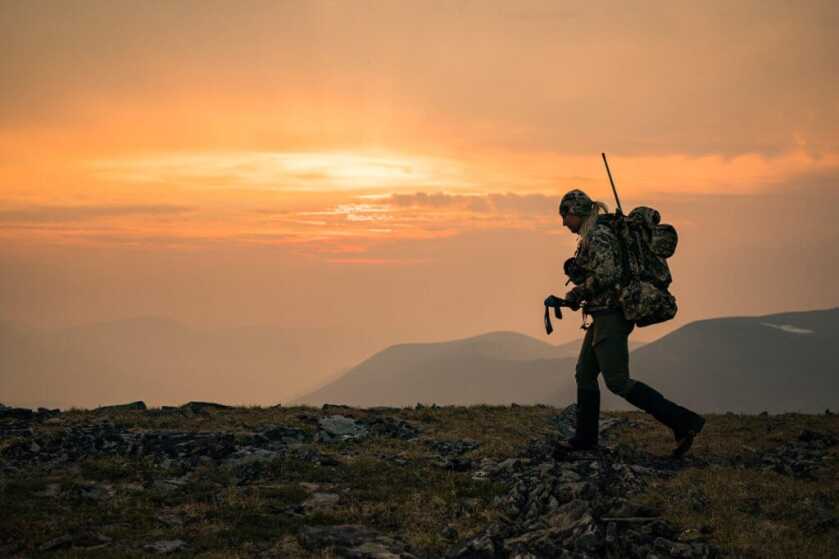
There is nothing more exciting than finally pulling the pin, or whipping out your pocketbook on that dream hunt you’ve been saving for. Your adrenaline is high, your anticipation is mounting, and you most likely are so excited that some very simple details might not come to mind when booking your hunt. Over the years of receiving clients in camp, here are the Top Five Mistakes Hunters Make and How to Avoid Them.
Before you book-do your homework.
As I put the final touches on this article, I am in between airports heading down from Canada for marketing season like a whole host of my industry friends. Outfitters and guides from all over the world gather through January and February at various hunting and outdoor shows throughout the marketing season. Take advantage of the outfitters coming to a city near you, and go spend some time with them. You are about to make an investment, both financial and time committed, that requires attention to a lot of moving parts- the better you are prepared, the more at ease you will feel about booking.
1. RESEARCH
When you narrow down what you want to hunt, and where you can go to do so, take the time and research your potential outfitters that offer what you are after. Once you have your top five (or more) potential places to inquire with, use every resource you can to answer whatever questions you might come up with. Reputable outfits will have a reference list of past clients who have hunted the area and will include what species they took. Set some time aside and make the calls; Check out reviews on their affiliate industry or association organizations. Are they in good standing? Don’t be afraid to ask specific questions about the dates that you intend to book. Questions can be ‘what could I anticipate for weather temperature/change? Gear needs that aren’t listed? Amenities? Add on species if I am successful early… etc.’
2. DON’T NECESSARILY GO THE CHEAPEST ROUTE
The ever-savvy consumer will always work to get the best deal for their hard-earned dollar. But I would highly caution any person who is faced with the option to book one hunt over another based-on price versus opportunity to wait. Many times, you will be able to find a hunt that is advertised as ‘cheaper’ than another option. Educate yourself as to why those options might be cheaper. It could be for a variety of reasons that may include low success on harvest or a time of year that isn’t optimal, or even that the lodging might be quite rustic. There are a whole host of reasons why one hunt might appear cheaper and a better bargain than another. Sometimes it isn’t due to low opportunity, it could be a new outfit or management. If you are faced with making a decision like this, my advice would be to wait. Save for the hunt that you really, really, want to do. Even if it means putting off till next year or make peace with the odds and be content to gamble on a more budget-friendly option.
3. BRING THE RIGHT GEAR
The gear that helps you stay in the field longer, warmer and drier based on your pursuits is ALWAYS WORTH the investment. Remember, ‘Gear’ isn’t just what you wear. Make sure you are bringing an adequate sleeping pad that you will actually be able to sleep on, a sleeping bag that is warm enough for you (and light/compactable). If you are headed to a completely different hunt (geography-wise and game etc) than what you are used to you should always ask the outfitter or guide for their pack list. I would also reference back to the clients on the reference list. “What did you bring that you would leave behind, and what didn’t you bring that you won’t forget next time?” Previous clients are a great resource that have already done what you are about to embark on. Don’t be afraid to ask!
4. TRAVEL AND UNFORESEEN HICCUPS
We are very blessed to be able to travel the world with the click of a mouse and the aid of a passport in modern convenience with comfortable aircraft. But more often than not, bags can on occasion get lost- and it’s usually on the trips where you are traveling with items you are relying on. I highly recommend traveling wearing your hiking boots, and having a few changes of clothes, rain gear, and optics in your carry-on. If your luggage is lost, you can still get out in the field and borrow pieces from basecamp until your gear catches up with you. Most places will have some spare odds and ends for this (* Also a great question for your outfitter and how they handle your trip interruptions).
5. BE REALISTIC
You’ve done the work; you’ve put in the miles getting prepared as physically as you can. You’ve crushed your target practice, and are as mentally ready as you can be but remember to keep yourself in check. At the end of the day, you are going to be miles (upon miles) from aid. You are going to be out against the elements and stuff can happen. You need to be realistic about your limitations and capabilities. Whether it is past injuries, current developments, or ongoing health concerns, you need to communicate that to your outfitter and guide. There is no sicker feeling than finding out someone wasn’t truthful about their health or impediments, and it putting the whole hunting party at risk. It doesn’t matter if you are in your thirties, or still crushing the mountains into your later years, stay healthy, be honest, and communicate with your hunting party so that they can help you be successful in your hunting adventures.

